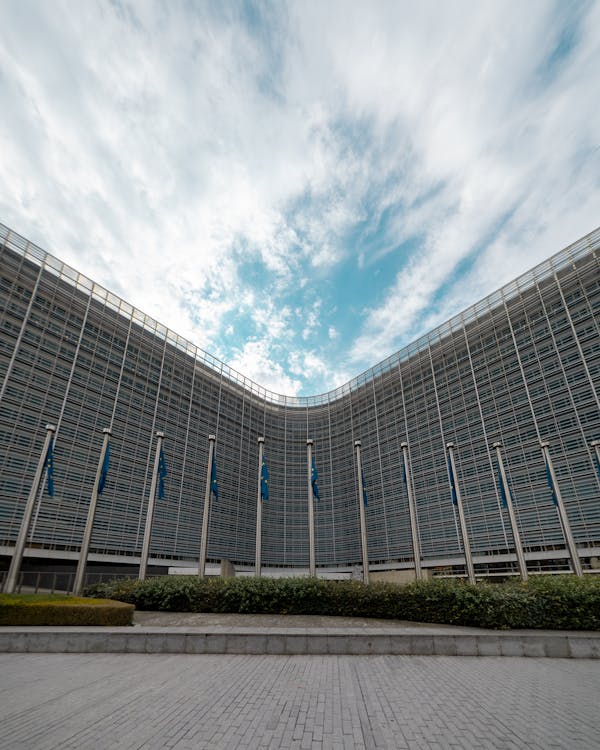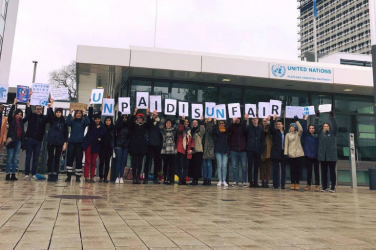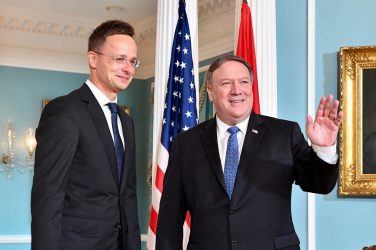After the nomination –and eventual adoption– of Ursula von der Leyen as European Commission President, German citizens were flabbergasted, while the rest of Europe stood asking themselves who this person was. She was not on the ballot for the European Elections, nor is she a prominent EU politician from the past. Then, how did this happen?
The path of von der Leyen’s nomination and approval for the top position in the EU is paradigm of Europe’s bureaucracy and stupidity. Not only does it play into the hands of Eurosceptics with its behind-closed-door-deals, but it also increases the power play and mistrust between Council and Parliament. By nominating a non-elected person, the Council –and, thus, national governments – gave a clear sign against the Spitzenkandidaten process. This move showed once again that the EU is a political system sui generis: its development does not follow any pattern we know from either a nation state or other intergovernmental organisations like the United Nations.
Is a choice of one person still a fair choice?

During the last couple of months before the elections, plenty of campaigns all over tried to explain the electoral system to the citizens to make them understand that their vote counts and directly translates into who governs them. Although only a minority of voters went for the Spitzenkandidaten, it came as a big surprise that the people that they elected had eventually a choice between one person and basically halting the EU. Is that what European democracy looks like? A barely understood system that will eventually be ignored and a decision which is not one?
The EU is a political system sui generis: its development does not follow any pattern we know from either a nation state or other intergovernmental organisations like the United Nations.
The nomination of von der Leyen evoked harsh criticism as being undemocratic, non-transparent and, consequently, very harmful for the EU’s image. However, looking at the treaties about how the Commission President is selected and elected shows that von der Leyen’s nomination by the Council was perfectly legal: “Taking into account the elections to the European Parliament and after having held the appropriate consultations, the European Council […] shall propose to the European Parliament a candidate for President of the Commission. This candidate shall be elected by the European Parliament by a majority of its component members”. Furthermore, it is also important noting that the heads of states or governments have their own democratic legitimisation through national elections.
Why go through the Spitzenkandidaten process in the first place then? This procedure was developed in response to increasing unease in the Parliament towards the traditional way in which a president was appointed, which was a secretive and non-transparent process. The European Parliament wanted to ensure having a stronger voice when it came to the Commission. Therefore, in 2009, article 17.7 was amended with the sentence: “taking into account the elections to the European Parliament”. The application of the Spitzenkandidaten process was thus an achievement of the European Parliament five years ago, and it brought Jean-Claude Juncker into office – the back then leading candidate of the biggest party, the conservative EPP.
The night of 26 May was indeed a game-changer
This principle is arguably slightly more democratic than the composition of the European Council, as it directly mirrors the results of the elections. Although there are some exceptions in member states where the top candidate of the biggest party did not become head of government –like Matteo Salvini in Italy– this is still the norm in most democracies. However, some things have significantly changed in the last five years: the Conservatives (EPP) and the Socialists (S&D) lost its combined majority in the European Parliament, while the European Council became more heterogeneous, with a wider colour spectrum of national governments. The night of 26 May was already expected to be a game-changer for European politics – and indeed it was.
Although most of the major parties re-iterated their support for the Spitzenkandidaten process on the night of the elections, none of the candidates could form a majority behind them. The Council was aware of that and had an arguably Herculean task in choosing the right candidate – an assumption proven by the 50-hour meeting held in the Schuman Square building. The meant-to-be EPP candidate Manfred Weber was disliked for lacking charisma and experience, having had no higher office in a national government. French president Emmanuelle Macron was especially active in vetoing him. On the Socialist side, his strong stance on rule of law earned candidate Frans Timmermans a rejection from the Visegrad countries, like Poland or Hungary. Margrethe Vestager, liberal candidate, seemed to have never really stood a chance – she was running for a group that was only the third force at the Parliament, and for a party that rejected the Spitzenkandidaten process from the start. In this scenario, Ursula von der Leyen was the compromise option put forward by Macron. Nonetheless, her nomination followed a storm of criticism from MEPs across the political spectrum, and her approval was never certain.
Weber was disliked for lacking charisma. Timmermans got rejected by the Visegrad. Vestager seemed to not stand a chance.
The fragmentation of the newly elected European Parliament painted a major difficulty for von der Leyen, as she was compelled to get votes from many different parties, albeit with very different programmes. The former German minister knew this, so she went to the parties in the run up of the vote to try to get their support to be validated in her position. Having only a small time-frame to prepare many different topics, she stayed vague in her responses and further gave contrary concessions. The Green party was unimpressed by her performance, making it clear that they would not vote for her. Other parties were however more hesitant, as they were waiting to see if she would give into their demands.
Political demands vs. democracy

The liberals from Renew Europe asked for a conference on the future of Europe, and demanded Vestager would be at the same Vice-president level as Timmermans. The Socialists had just secured the presidency of the Parliament for David Sassoli with the support of the EPP, playing the “I give you my votes when you give me yours” game. Although a few –especially the German delegation, in a coalition with von der Leyen’s party in Germany– were outspokenly against her nomination, their European Socialist family seemed to be content with getting not only the presidency of the Parliament, but also the position of High Representative for the Spaniard Josep Borrell.
But what about the people’s vote? In all of this back-room discussions and power play of who gets which position, the politicians in Brussels and Strasbourg seem to have forgotten who gave them their mandates. After month of campaigning for the lead candidates and explaining the citizens how the system works –with a long and complicated German word, no less–, the Council dismissed them. Why should they trust the Council after that? Why should they even defend the European Union?
In this particular case, it seems as though both institutions are to blame. On the one side, the Parliament was unable to form a coalition behind one candidate, thus creating pressure for the Council. It seemed obvious that neither Weber nor Timmermans or Vestager would find the support to be approved. On the other side, von der Leyen –or any other random outsider candidate nominated by the Council– was going to embody the undemocratic and non-transparent system that lies behind the institution. A system that cannot survive for long and goes against European fundamentals. Relying on the Parliament, the body that always fashions itself as being the sole in the EU to be directly elected, was therefore the only hope left. But the hope was broken and they also disappointed by approving her. Their greed for top positions seemed higher than democracy. But isn’t an institutional halt better than abandoning our democratic principles over and over again?
Relying on the Parliament, who fashions itself as the sole directly elected institution, was the only hope. But the hope was broken
Cover Photo: Randy Colas (Unsplash); Licence: CC0





